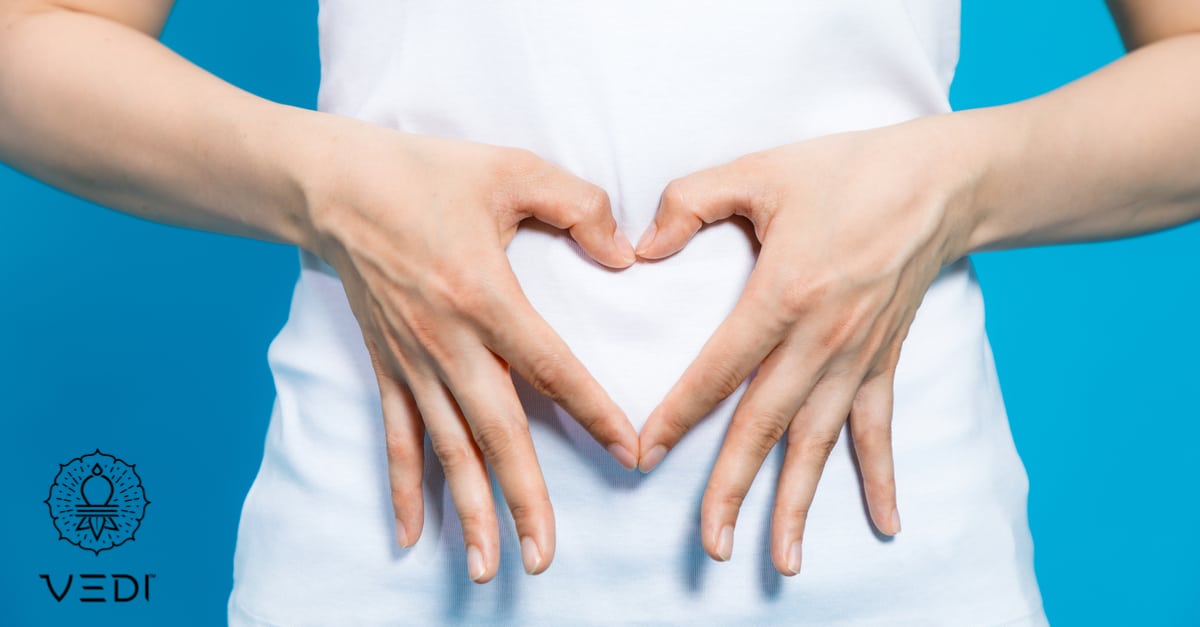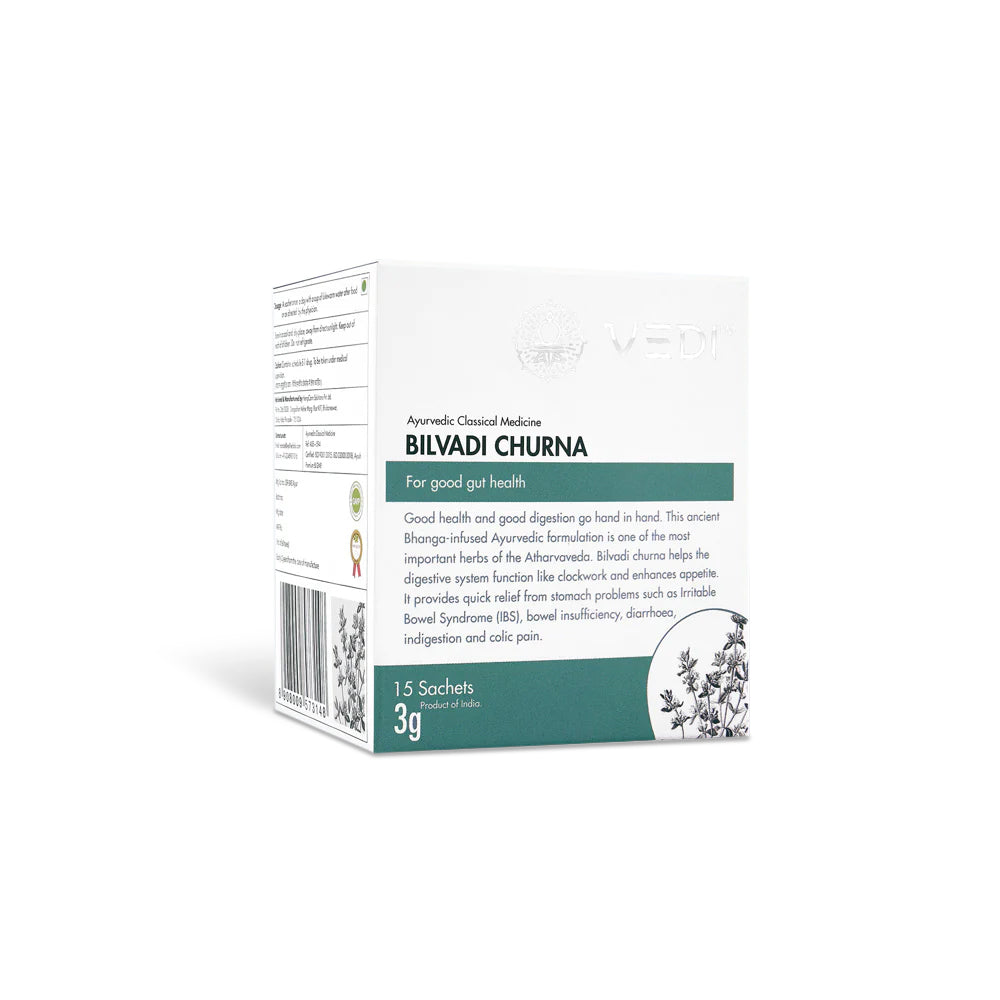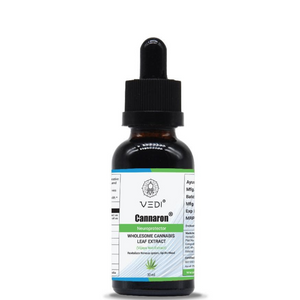Bilwadi Churna for Gut Health: Benefits, Ingredients, Dosage & Precautions

Do you know which organ is responsible for a person to be in supreme health? Yes, it is the Gut. Ayurveda believes that the gut or the digestive system is the core of activities and if the gut is in perfect condition, the overall health of the body will also be perfect.
Bilwadi Churna, an Ayurvedic medicine, is primarily used to address gastrointestinal issues such as irritable bowel syndrome, indigestion, gastritis, colitis, diarrhea, and dysentery. It possesses potent digestive and astringent properties, making it widely utilized for enhancing digestion through stimulation of digestive enzyme secretion in the stomach.
What is the gut? What are its functions?
The gut is the gastrointestinal tract and is considered an important part of the digestive system. Food that we eat is digested by the gut and provides nutrients to all parts of the body. This helps the entire human body to function normally and perform its activities.
It can also play an important role in affecting mood and memory. The majority of serotonin, a hormone meant to make us feel good, is actually produced in the gut! There are nearly 100 trillion bacteria in the body and most of them are stored in the gut.
What are signs of good and bad gut health?
Signs of good gut health are when an individual has a good appetite, excellent digestion, and regular bowel movements.
When gut health is not optimal, we show symptoms of indigestion, constipation, or irregular bowel syndrome. Ayurveda believes that conditions such as skin and heart problems, diabetes, high cholesterol, fatigue, etc., are also related to gut health.
Is it the Doshas that determine good gut health?
No, when it comes to the gut, it is the Agni and not the doshas that determine its optimal functioning.
When Agni or the digestive juices are working well, the food assimilated is digested within the stipulated time and the body is nourished. When Agni is weak, it leads to the accumulation of the doshas.
When the doshas accumulate in the digestive system they manifest as diseases.
Can you tell which Dosha accumulates where and what are its effects?
Kapha accumulates in the stomach and it can manifest in the form of excess mucus, cough, asthma, diabetes, and obesity.
Pitta accumulates in the stomach and small intestine. The result of excess Pitta could lead to skin problems, heart problems, and inflammation.
Vata accumulates in the colon. Nervous conditions, degenerative conditions, and bone problems could be symptoms of excess Vata.
As mentioned earlier the reason for doshas to accumulate is a weak Agni.
Is there also a classification for types of Agni? And are there any symptoms to recognize them?
Agni can be classified into 3 sub-classes -
- Jatharagni–It acts on the food in the digestive tract and converts it into absorbable form.
- Bhutagni - Bhutagni is of 5 types, each of which acts on the one primordial constituents of the absorbed food- earth, water,fire,air and space.
- Dhatvagni - The third class of Agni, the Dhatvagni, acts at the level of tissue metabolism.
Agni can also be classified based on its strength into 4 types. Ayurvedic practitioners are able to identify them based on symptoms that an individual experience. The four types of Agni are -
Visham Agni- When a person complains of irregular digestion this is an indication that he/she may be experiencing a condition of Visham Agni. For a person having this condition, the appetite is irregular, and digestion varies from day-day. Some other symptoms of Visham Agni are bloating, intestinal cramps, constipation, dry stool and gas.
Tiksha Agni- In this condition, the Agni is stronger than usual. In layman terms, this condition is called acidity. A person with Tiksha Agni experiences a sharp burning sensation and pungent or spicy food may not suit the individual. Other symptoms include loose stools, hyperacidity/ heartburn, and sharp appetite.
Mandagni- as the name suggests in this condition digestion is slow. For a person having Mandagni, digesting one meal may take as long as 4-6 hours. Symptoms of the Mandagniinclude slow metabolism, weight gain, sticky stools, and low appetite.
Sama Agni- is not a condition to worry about. Our aim should be to have this status of Agni in our body. In this condition the gut is healthy, works well, digestion and appetite are normal. People with Sama Agni also have strong immunity, shiny eyes, and glowing skin. All these are indications of a healthy and normal gut.
Does Ayurveda have any remedy to improve gut health?
There are a number of small daily practices that we can inculcate to stimulate the Agni. Also including some foods can rekindle the Agni. However, the most effective remedy to improve gut health is Bilvadi Churna.
What are Bilwadi Churna ingredients and how does it work?
Bilwadi Churna is a combination of seven ingredients. Of these, the important ones are Bilva fruit, Ginger, Sounf, and Cannabis. Each ingredient plays a role in improving gut health.
Bilva fruit has a high proportion of Tannins. These Tannins help relieve conditions of constipation, diarrhea, and indigestion. Ginger promotes the release of intestinal gas, aids digestion, and relaxes the gut. Sounf helps to improve the metabolism of the gut and reduces incidences of bloating. Cannabis helps in increasing the good microbes and improving appetite.
Thus, every ingredient used in making the Churna helps the gut to improve its functioning thereby making it healthy. They also improve digestion and metabolism, thus preventing the elimination of undigested foods. It acts to improve the functions of the stomach, intestine, and liver.
The major benefits of Bilwadi churna are attributed to its digestive stimulant, carminative, antispasmodic and astringent(grahi) properties. It absorbs the excess liquid content from the intestines. Thus reducing the frequency of loose stools.
Bilwadi churna is helpful in following health conditions-
- Diarrhea,
- Dysentery,
- Bloating,
- IBS (irritable bowel syndrome),
- Colitis, and
- bacterial infection.
Bilwadi Churna Benefits
This Ayurvedic blend has a lot of benefits for healthy well-being. From soothing digestive issues to promoting overall gut health, this Churna works wonders. Benefits of Bilwadi Churna include:
1. Promotes Digestion
Bilwadi Churna is really good at breaking down food in your stomach and intestines due to its strong ability to help digest food. This makes your stomach produce more digestive juices, which helps your body absorb important nutrients better. It also helps get rid of stomach gas and treats issues like bloating, feeling too full, and stomach cramps caused by gas.
2. Helps Cure Diarrhea
Bilwadi Churna is a medicine with strong abilities to fight bacteria and stop diarrhea. It's often used to get rid of harmful bacteria in the gut that cause diarrhea and other gut infections. It can also help with a specific type of intense diarrhea called AMA ATISARA, which makes the bowel slimy, sticky, and smelly. Besides removing toxins from the body, it also helps to reduce how often and how much loose stool you have during diarrhea and dysentery.
3. Relives IBS
IBS, also known as Grahani in Ayurveda, mostly happens because of eating unhealthy foods, eating too much hard-to-digest food, eating things you're allergic to, or not getting enough nutrients. It can also be caused by eating too much, eating irregularly, or by other physical, mental, or emotional reasons. IBS can lead to either diarrhea or constipation sometimes. But Bilwadi Churna, which contains special herbs for digestion, is a great choice for treating this painful problem.
4. Prevents Bloating
This special powder is made with natural ingredients like sounf, sonth, hing, and dhania. It helps to reduce stomach gas and makes you feel less bloated and heavy. It's good for colitis too, especially when combined with Praval Pishti, Mukta Pishti, Vanshlochan, and Swarna Parpati.
5. Remedies Nausea
The potent anti-inflammatory, antibacterial, and analgesic properties inherent in the herbs utilized in this blend are pivotal for purifying the digestive system and addressing gut issues that lead to nausea. Additionally, they aid in enhancing digestion, and preventing bloating, thereby alleviating the root causes of nausea or vomiting.
Bilwadi Churna Side Effects
While Bilwadi Churna is highly effective in treating various health issues, exceeding the recommended dosage can lead to certain side effects. These may include:
- Sensations of burning
- Hot flashes
- Heartburn
- Mouth ulcers
- Excessive sweating
Bilwadi Churna Dosage
For adults, the recommended dosage is 1-2 teaspoons of Bilwadi Churna, taken with water, twice daily, ideally after meals or as advised by an Ayurvedic practitioner.
Bilwadi Churna is typically taken after food. It is commonly recommended to take it with water or as directed by an Ayurvedic doctor. Taking it after food helps optimize its effects on digestion and gastrointestinal health. However, specific instructions may vary based on individual health conditions and the advice of a healthcare provider, so it's always best to consult with them for personalized guidance.
Is Cannabis a psychotropic drug?
This is a huge misconception regarding Cannabis. This herb was used in India for centuries as a healing herb. Sadly, it has now been relegated to a psychotropic drug, and its medicinal properties are long forgotten. You can read more about Cannabis and its medicinal uses here.
Where can we buy Bilwadi Churna?
There are many market players who manufacture this Churna, It can also be purchased on the Vedi website. VEDI manufactures all its products in an authentic way using Organic and natural ingredients.
We hope this blog answers all your questions with regards to gut health. For more information, you can contact the doctor on our website.
Frequently Asked Questions
Q: Which Ayurvedic medicine is used to improve digestion?
A: Bilwadi Churna has been a trusted Ayurvedic remedy for addressing abdominal disorders and their associated symptoms over an extended period. It works fast and effectively, calming down any disturbances in the digestive system when you take it.
Q: What is the use of Bilwadi Churna?
A: Bilwadi Churna is used to alleviate digestive discomfort and promote gut health. This Ayurvedic blend helps soothe the digestive system, relieve symptoms like bloating and abdominal discomfort, and supports overall digestive wellness.
Q: Is Bilwadi Churna good for IBS?
A: Bilwadi Churna is beneficial for IBS. Its blend of Ayurvedic herbs helps treat symptoms like abdominal discomfort and irregular bowel movements, promoting a balanced digestive system and providing relief from IBS discomfort.









1 comment
बहुत ही शानदार व सटीक जानकारी प्रदान की है आपने बहुत-बहुत धन्यवाद आपका दिन शुभ हो
Thankyu